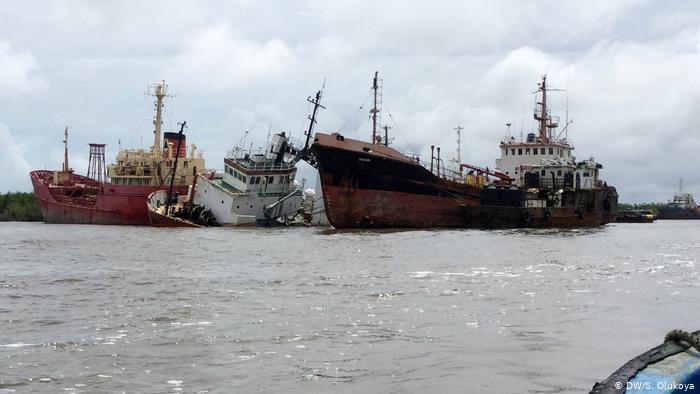By Akanimo Sampson
A damning report by the International Maritime Bureau (IMB), a London-based organisation that tracks attacks on sea vessels, that Nigerian waters are still risky for vessels, has helped in jerking the obviously jolted Federal Government under President Muhammadu Buhari’s watch into action.
With 30 incidents so far recorded this year, the Gulf of Guinea is widely regarded as the world’s most pirate-infested sea. Last year, the Bureau reported 72 attacks on vessels at sea between Ivory Coast and Cameroon, up from 28 in 2014.
Max Williams of Africa Risk Compliance (ARC), a security consultancy, has been quoted as saying that piracy remains chronically under-recorded apparently because ship-owners fear that their vessels will be held up at port during investigations.
Williams’ security firm however, estimates that the real number of attacks last year was double the 72 figure IMB reported.
Wikipedia defines the Gulf of Guinea as the northeastern most part of the tropical Atlantic Ocean between Cape Lopez in Gabon, north and west to Cape Palmas in Liberia. The intersection of the Equator and Prime Meridian (zero degrees latitude and longitude) is in the gulf.
Among the many rivers that drain into the Gulf of Guinea are the Niger and the Volta. The coastline on the gulf includes the Bight of Benin and the Bight of Bonny.
The region is said to account for all the crew kidnappings reported globally in the three months, after 21 of them were taken in five separate attacks, the IMB said. Incidents were reported off the coast of Benin, Cameroon, Ghana, Ivory Coast, Liberia, Nigeria and Togo in the first quarter, it said.
Piracy attacks off Nigeria’s coast however, fell to 14 in the first quarter from 22 a year ago after the Nigerian Navy improved its response to incidents, IMB said.
‘’These results confirm the navy’s increased efforts to actively respond to reported incidents by dispatching patrol boats’’, the London-based body said, adding, ‘’despite these efforts, Nigerian waters remain risky for vessels, especially the port of Lagos where four incidents have been reported.’’
In a seeming frantic bid to tackle the scourge, President Buhari has signed into law an anti-piracy bill to improve security on the ‘’risky’’ Nigeria waterways and exclusive economic zone, the Nigerian Maritime Administration and Safety Agency (NIMASA) said.
The Suppression of Piracy and other Maritime Offences legislation will ‘’ensure safe and secure shipping on Nigerian waters, prosecute infractions, and criminalise piracy’’, NIMASA said.
In a statement NIMASA Director-General, Dakuku Peterside, said, ‘’we are determined to continue to deliver on our promise to investors and the international community to ensure an increasingly safer and more secure environment for profitable maritime business.’’
Nigeria has been a hot spot for piracy incidents over the last 10 years, even though she dropped in the first quarter of this year, according to the IMB. The Bureau in its first quarter report rang a warning bell, ‘’Nigerian waters remain risky for vessels.’’
The new law provides penalties upon conviction for maritime crimes, restitution to owners of violated maritime assets or forfeiture of proceeds of maritime crimes to the government.

